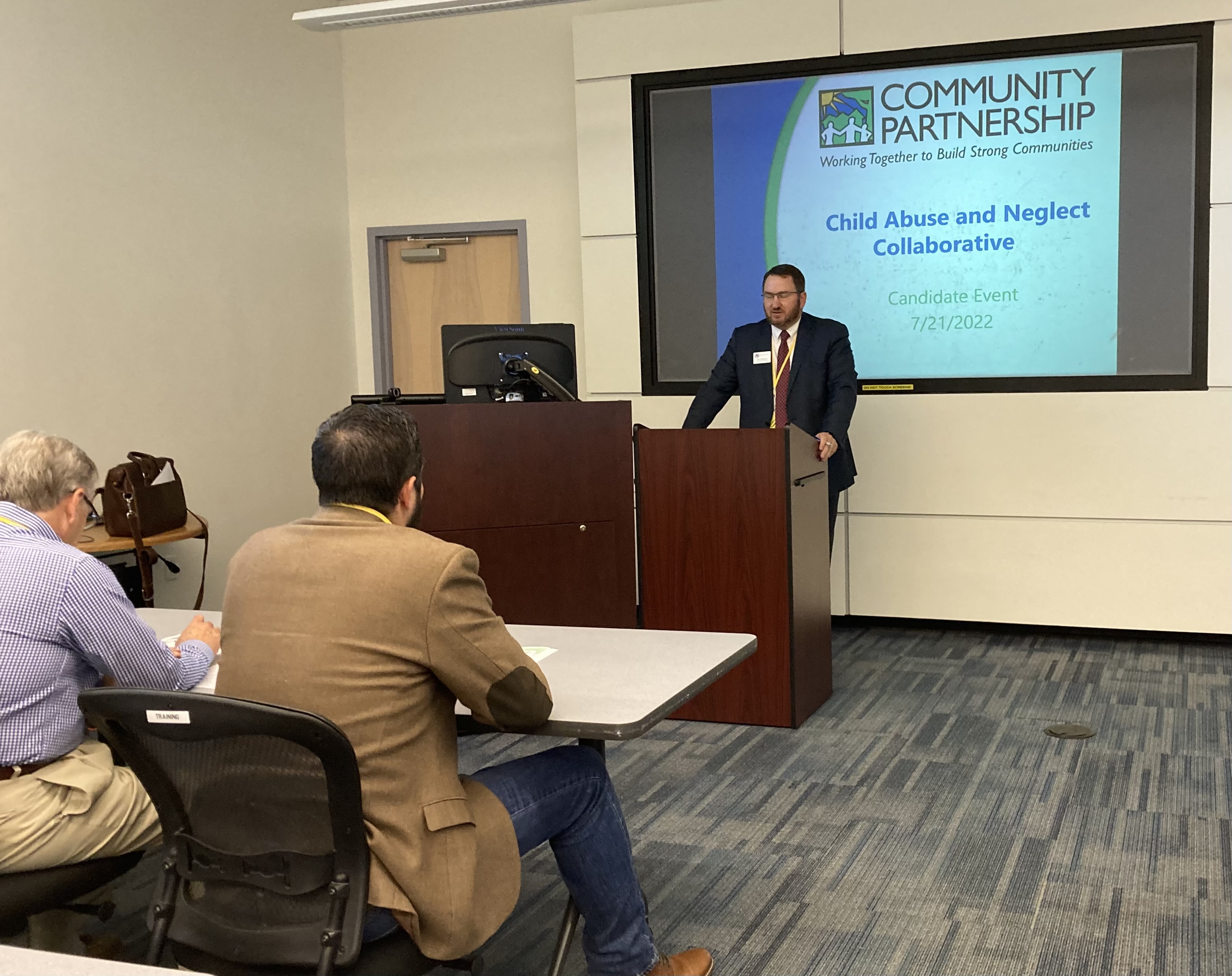Greene County currently has 209 traditional foster homes and 156 relative foster homes. Of the 728 kids in foster care in Greene County, 412 were able to be placed in foster homes here in Greene County.
That means 316 Greene County foster kids have been sent to foster homes elsewhere in the state.
“Birth parents are already struggling, so to ask them to drive to St. Louis, Kansas City or Southeast Missouri for visits with their kids and then get mad at them because they can’t?” Greene County Children’s Division worker Renaie Wehmeier said. “It really does impact reunification the further we pull them away from the community they are out of — not to mention the ties they’ve made.”
Wehmeier made those remarks Thursday morning at the Child Abuse and Neglect (CAN) Collaborative monthly meeting. Local legislators and those running for office were invited to attend the meeting and learn more about the many issues related to child welfare in Greene County.
“When we pull kids out of their homes, they lose their school, they lose their pets,” Wehmeier continued. “A lot of times they lose their siblings, which is more important usually than the birth parents’ relationship because they’ve leaned on their siblings.”
Wehmeier said when children are placed in foster homes far away from Greene County, it often falls on caseworkers or the foster parents to drive the children back and forth for weekly visits.
“We need to have these kids close to their community,” she said. “The younger they are, it’s important to have additional visits, have that bonding in the beginning, especially the babies.
“We are really kind of in a dire strait for foster homes,” Wehmeier said.
Greene County Prosecutor Dan Patterson explained that Child Abuse and Neglect Collaborative members come from a mix of government and non-governmental organizations “that come together to prevent child abuse by strengthening families and improving our community’s response.”
Politicians who attended the meeting include candidates Brian Gelner, Angela Romine, A.J. Exner, Raymond Lampert, Tom Barr and Amy Blansit, and representatives Bill Owen and Craig Fishel.
Patterson, who serves as Chair of the CAN Collaborative, said Greene County is fortunate in that the different agencies and members of the Collaborative do just that — they collaborate and work together to support families and children.

“They do good work, but they can’t do it alone,” Patterson said. “It is imperative they have the understanding and support of representatives in the state legislature.
“When you leave here today and as you consider legislation or other policy matters that impact children and families in our community, I hope you remember a few things,” he said. “One is that it is critical that we support those who work in the fields of child abuse and neglect and ensure that they have the capacity in a trauma-informed way to dig in and help families where they are, in the way that they need it most and without causing additional trauma. …
“And finally, that you will view the Child Abuse and Neglect Collaborative here in our community and its members as a great resource for you as you consider those matters involving children and families that come before you.”
Bill Prince, Greene County chief juvenile officer, shared the following statistics:
Over the past five years, the Greene County Juvenile Office has seen an increase in the number of referrals received. Referrals are reports that Children’s Division sends to the Juvenile Office, asking for some sort of court intervention. The increase trend peaked in 2020.
“Year to date, we’ve had 256 referrals coming in,” Prince said. “If that trend continues, we are going to be higher than we were last year.”
Prince shared the following foster outcomes statistics from 2021:
- 167 cases ended with the children being reunified with their birth parent(s)
- 139 were adopted
- 65 cases ended with guardianship
- 19 achieved independence
- 11 transferred to another jurisdiction
- 3 transferred to the Department of Mental Health
“We still terminate far too many parental rights, I think,” Prince said. “But we are seeing the reunification numbers begin to outpace the numbers of cases that close by adoption.”
Darrell Missey, the director of Children’s Division, also attended the CAN Collaborative meeting. Missey, a former juvenile judge, was appointed to lead the state agency in December 2021.
“Foster care is tough. It is an intervention that comes with a great deal of side effects. Just the act of removal causes trauma,” Missey said, adding that it increases the chances of having post-traumatic stress disorder, depression and to have higher rates of substance abuse.
Missey said there are currently 13,913 Missouri children in foster care.
“We are fifth in the nation per capita in number of kids in care,” he said. “We have double the national average.”
Missey went on to encourage those in the room to turn to faith communities when recruiting for foster homes.
“Because if every single church in this county — and I saw a whole bunch of them driving in — if every one of them had a foster home in it,” Missey said, “and a whole community of people supporting that foster home and supporting that kid and helping take care of the biological parents to try to get their kids back, you could revolutionize this thing with the number of really great faith communities you have in Greene County. And if anybody wants me to come talk to them, I will do it.”

